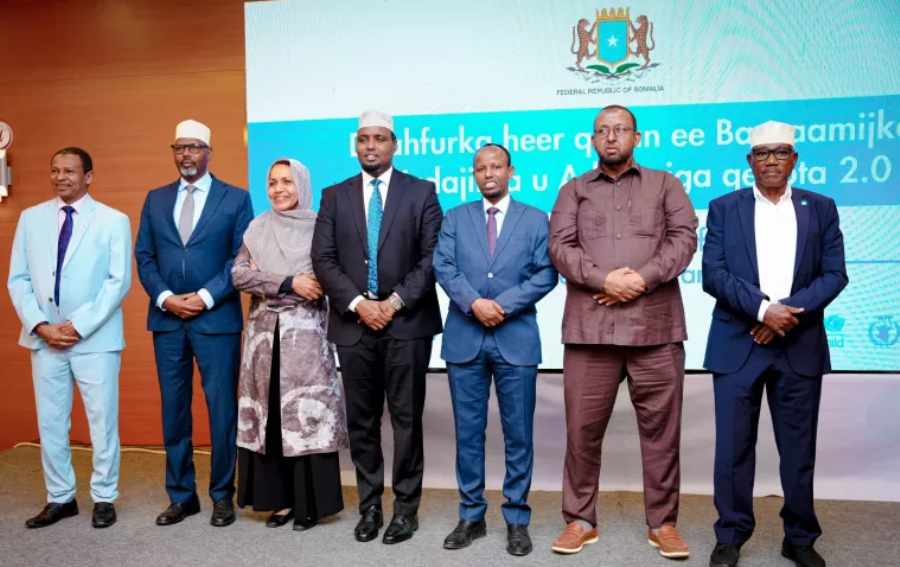Somalia has launched the next iteration of the “Joint Resilience Program”, which aims to improve resilience to economic and climate related shocks among households and local communities in four districts in Puntland and Galmudug states.
Funded by the Government of Germany through KfW with an initial allocation of EUR 30 million, the Program will target one million people in North Galkayo and Galdogob districts in Puntland state and Dhuusamarreeb and South Galkayo districts in Galmudug state and will be implemented over 18 months in a first phase.
The program aims to increase access to inclusive, child-friendly education, school water and sanitation (WASH), health and nutrition for children at pre-primary and primary levels, reduce micronutrient deficiencies among young children and pregnant and breastfeeding women, enable households to improve food security and livelihoods through diversified agricultural production and income generation, and strengthen government systems to promote quality health, nutrition, education and WASH services in schools and health facilities.
Targeted individuals include school-aged children, internally displaced children, vulnerable adolescents, and pregnant and breastfeeding women. The Program will be overseen by the Ministry of Planning, Investment, and Economic Development and implemented by the United Nations Children’s Fund (UNICEF) and the World Food Program (WFP) together with the relevant ministries of the two state governments, district and local authorities, and non-governmental organizations.
This new program expands on the results achieved in Phases I, II, and II of the first Joint Resilience Program, which has been implemented in Benadir region and Jubaland state since 2018 and is phasing out in late 2024. These include:
- Reduced acute malnutrition rates in Dollow among children under five years from 13 per cent in 2019 to about 10 per cent in 2022.
- 100 treatment centers operating to treat acutely malnourished children affected by drought.
- Improving the health of 300,000 children and 160,000 breastfeeding mothers and preventing further malnutrition.
- 95 per cent of the 45,000 children in schools supported by the Program have not dropped out of school. Out of these, 35,000 continue to benefit from nutritious school meals.
“Most children in Somalia continue to endure climate related shocks and protracted conflicts with alarming regularity and often with far-reaching consequences on their health and well-being,” said UNICEF Representative Wafaa Saeed. “The Joint Resilience Program has been able to achieve this success because of the leadership of the Government of Somalia, the generous support of the German government, and the collaboration of WFP. Through the years, this partnership has delivered critical, lifesaving support to vulnerable children and women and enabled them to cope better with shocks and crises, and we are delighted with its extension to the four districts.”
“This Program builds on the strong foundation established by the Joint Resilience Program and will enable the steady shift from humanitarian response to enhanced resilience and build the capacity of communities at the frontline of the climate crisis to respond to shocks,” said WFP Somalia Country Director Elkhidir Daloum. “Working with UNICEF and partners, this lifecycle approach will meet the needs of mothers, infants, school aged children and adults, while strengthening the resilience of local food systems. I thank the Government of Somalia for their leadership, and the Government of Germany for their sustained support to this critical Program.”

